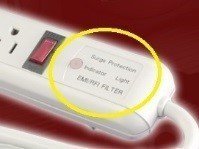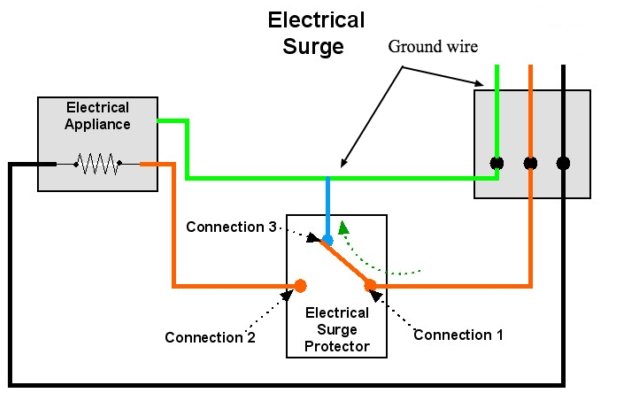Is It OK to Run My AC in a Thunderstorm? A Florida Tech Answers
August 04, 2016

No other part of the U.S. gets as many thunderstorms as Florida. So it’s no surprise that we get this question A LOT from concerned customers.
The simple truth is that it doesn’t matter whether you run a central air conditioner during a thunderstorm.
Why?
Because the unit is always hooked up to your home’s wiring. Turning the AC off does not disconnect it from your home’s main circuit. And as long as it is connected to your home’s wiring, the powerful surge of electricity from a lightning strike can and will reach your unit.
So what can you do to protect your AC unit from power surges during a thunderstorm?
According to the Insurance Institute for Business and Home Security, your best bet is to install a surge protector.
Note: Be careful that you aren’t confusing surge protectors with “power strips.” Power strips simply plug into your outlet and let you plug in multiple appliances but offer very little, if any, protection against major electrical surges. Be sure that your surge protector is, in fact, a surge protector and not just a power strip.

Photo source: blogquail.com
We’ll go over how a surge protector works to protect your AC unit and give you some tips to ensure that you get the most out of your surge protection.
How does a surge protector work?
Surge protectors work by carefully monitoring the electrical current that flows through your home’s wiring and into a particular electronic appliance (like your air conditioner).
Once the electrical current reaches a “dangerous” voltage, the surge protector snaps into action and diverts the extra voltage into the ground wire.

During a surge, a surge protector diverts unsafe voltage levels into the ground wire to protect electrical appliances. Photo source: Judgeelectrical.co.uk
But the important thing to know is that even the strongest surge protector can’t protect against direct lightning strikes.
In short, almost nothing will protect your house against a direct lightning strike.
To give you an idea of this, a direct lightning strike contains about 5 billion joules (“joules”= a unit of energy) while a higher end surge protector protects against just over 4 thousand joules.
The good news is that the odds of your air conditioner being struck by lightning is ridiculously low: (1 in 280,000, to be exact).
So as a homeowner, you need to understand that buying a surge protector will not protect your air conditioner against a direct lightning strike.
Instead, surge protectors protect your AC against a much more common occurrence: an indirect lightning strike. Indirect lightning strikes refer to the effects (i.e. electrical surges) from a lightning strike that did not directly hit your home or air conditioner but hit nearby.
Now let’s look at some surge protector features that can help protect against indirect lightning strikes.
Surge protector features to invest in:
Joules
Remember how we measured a lightning strike in terms of how many “joules” it contains?
Well we can also measure a surge protector in joules. Basically, a surge protector has a pre-set amount of joules it can absorb before it completely wears out.
Think of it like a battery that only has a certain amount of energy. Once that energy is used up, it’s dead and needs to be replaced completely.
So, if a surge protector has 2,000 joules, that means it can take two 1,000 joule hits or one 2,000 joule hit. After that, though, it will stop protecting your air conditioner.
Basically, the higher the joules, the longer the protection.
VPR
“VPR” or voltage protection rating is the maximum voltage a surge protector will let through to the appliance it is protecting. The lower the VPR number, the better the protection.
Response time
The response time of a surge protector is exactly what it sounds like: a measure of how long it takes a surge protector to divert the extra voltage to the ground. This is measured in nanoseconds. Look for protectors with a response time of one nanosecond or less.
A good warranty
Make sure that you look into the warranty of the surge protector.
Many surge protector manufacturers offer coverage of a certain amount per incident if an electrical surge damages the motor of your air conditioner (if the surge fell within the limits of the surge protector).
For example, one Belkin surge protector warranty states:
“If your electronic equipment is damaged by a surge, spike, or lightning strike while properly connected to this power strip, we will repair or replace it, up to $300,000.”
Not sure if your AC is properly protected from lightning? Get help from a Florida tech
Have questions about what kind of surge protector is best for your air conditioner?
At Advanced Air we help keep your air conditioner safe from electrical surges in Florida. We offer both point-of-use surge protectors and whole-home surge protectors.
Just contact our professionals at Advanced Air to get more information.
- Posted in:
- Air Conditioning

